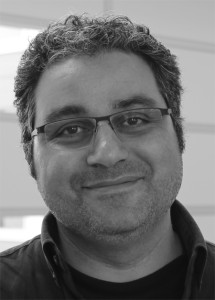Presenters

Chris Burger, Mayor, City of Parksville
Chris Burger has been Mayor of Parksville for 4 years and has been very focused on environmental policies in that time. He has championed water conservation and has overseen the development of a very comprehensive city plan.

Arthur DeJong has been with Whistler Blackcomb for more than 30 years. Through various roles including Ski Patrol Manager and Mountain Operations Manager for Blackcomb, Arthur has gained an exceptional familiarity with our mountain terrain and a deep understanding of the workings of the mountain ecosystem. Arthur pioneered work in the area of environmental planning on Whistler Blackcomb which has led him to his current position of Mountain Planning and Environmental Resource Manager. In this role, Arthur works to marry planning techniques that both improve the guest experience and respect the natural environment. Arthur has been an active member of the Whistler community for many years and believes that the key to effective planning is openness and community involvement. Arthur is currently active in numerous community social and environmental groups. He also dedicates volunteer time to crisis line counseling and international aid programs.

Dr. Nola-Kate Seymoar, Past President, International Centre for Sustainable Cities
Dr. Seymoar has three interdisciplinary degrees: a Ph.D. in Social Psychology, a Masters of Arts in Community Development and a Bachelor of Arts in Recreation Administration. Her academic interests have focused on communities and empowerment. Dr. Seymoar’s career has spanned four sectors – public policy (as a senior executive in the Government of Canada), academia (as a university professor and counsellor), business (as an entrepreneur in film and video) and non-government organizations (as Chair of “Smart Risk”, the Canadian Injury Prevention Foundation, and a member of The Centre for Days of Peace).

Dr. Maged Senbel is an Associate Professor at the School Of Community and Regional Planning, University of British Columbia. Maged‘s research focuses on public engagement in long term neighbourhood planning. He examines the use of multi-media visualization of urban form alternatives and the performance measurements associated with urban design alternatives. He strives to make planning more accessible to both expert and non-expert audiences. His publications include research on neighbourhood scale energy performance and comparative GHG emissions analysis, municipal climate change planning, youth engagement in climate change planning, leadership in sustainability planning, and the theoretical and procedural approaches to spatial thinking for people new to design. He has additionally theorized on approaches for cultivating inclusive and intercultural visions of a compelling urban future.

Jeremy Stone is founder and director of Recovery and Relief Services (RRS), a niche consultancy providing economic development and recovery planning services. RRS has worked with a variety of organizations, municipalities, and businesses including the US Economic Development Administration, the City of Vancouver, ‘Namgis First Nation, and Greater New Orleans, Inc. Jeremy has worked extensively throughout the coast of British Columbia with Ecotrust Canada, where he provided business and economic development planning to rural communities. Previously he managed a $20MM grant and loan program following Hurricane Katrina, and designed economic recovery programs with several organizations after the Deepwater Horizon oil spill. He was also a Peace Corps volunteer in Mongolia, and worked with the United Nations Development Programme on microfinance initiatives. Jeremy received his MPA in International Economic Development from New York University, and his BA in Anthropology from Reed College where he studied the effect of ‘cargo cults’ on economic development in the South Pacific. He is currently pursuing a PhD at the University of British Columbia (UBC) with a focus on gentrification and urban change.













